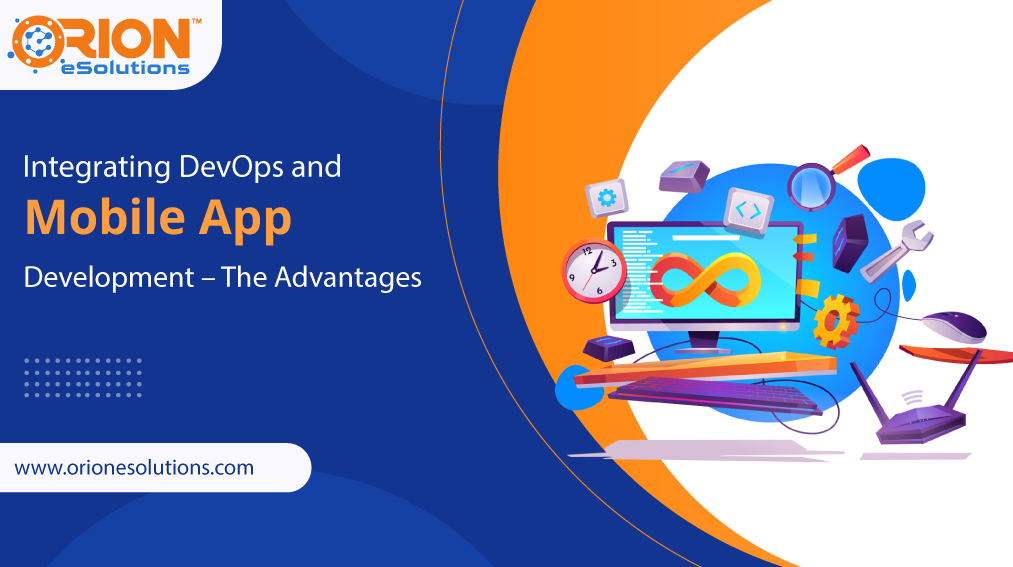DevOps is an approach to IT development that integrates the functioning of the Development and Operational teams. This ensures smoother work flow, better time management, and ultimately results in faster development and a streamlined process. Additionally, security can be married with this as well, resulting in what is known as DevSecOps. In this discussion, we will be discussing the benefits of marrying DevOps and mobile app development. However, let us look at the individual growth trajectories of both these markets.
- The mobile app development market was at a value of $170.52 Billion in 2020.
- By 2027, the market is expected to reach $366.34 Billion.
- The market will experience a CAGR of 5% from 2020 to 2027.
- The DevOps market was at a valuation of $3.62 Billion in 2018.
- After exhibiting a CAGR of 7% from 2019 to2026, the market tis expected to hit a value of $20.01 Billion by 2026.
Integrating these two can only add to the magnificence of development and will be the right use of the DevOps culture. Now let us look at 4 looming benefits of the role of DevOps in mobile app development.
DevOps and Mobile App Development
- Faster Time to Release
DevOps inculcates a culture of real time communication and immediate feedback. And this is adopted as a cross-team functionality that adds to the lubrication of the functioning of these various teams. This also adheres to the DevOps philosophy of Continuous Integration and Continuous Deployment. This reduces the time from a design-development standpoint. As a result of these iterative cycles, the practitioners can experience more frequent code deployment, regression testing, and a smoother phase-by-phase release.
- Better Resource Utilization
As the operations and development team works in sync, new builds can be deployed faster, features can be delivered in an optimized manner, and the pending updates can be achieved faster and easier. DevOps integration can also enhance source code management, the platforms for development as well as tools for testing. In short, it smoothens the task of frequent releases, in part by allowing automation.
- Battle Bottlenecks Better
DevOps integration enhances each involved process. This makes the entire function more transparent, efficient, and it also improves cross team communication. Tools, processes, and practice is better aligned with each other and it does away with inefficient modus operandi and reduces bottlenecks. This is a direct address against issues like manual intervention, inconsistencies within the development environment, and absence of operation practices. It ensures the maturity of workflow and the resultant stability.
- Faster Feedback
Not just faster, better as well. DevOps allows real time communication and allows instant feedbacks and reports. The stakeholders are also presented with a better idea of the entire development process as well as the regression testing. This ensures transparency. This further lubricates troubleshooting processes allowing mobile app developers to fix, revisit, and optimize user experience.
With these benefits dished out, it is evident that integrating DevOps into mobile app development process is definitely synonymous to process augmentation and development optimization. Let us conclude this discussion by understanding the 6Cs of DevOps adoption to give a better idea of what to expect.
SUMMING UP
DevOps adoption happens by adopting the 6Cs of the process. This includes:
- Continuous planning to bring together various teams and individuals such as the project team, developers, managers, analysts, and other stakeholders.
- Continuous Integration to ensure code reusability and faster work flow.
- Continuous testing to follow an iterative method that allows faster fire fighting and more frequent releases.
- Continuous monitoring to understand user experience in real time and make the relevant and necessary changes and roll out updates.
- Continuous delivery to ensure that the development is happening in small increments that add up to be a major change.
- Continuous deployment ensures that any increment that happens is immediately integrated to the production environment.
And with that, we come to the end of this discussion. If you are looking for some professional support for your mobile app development ventures or want to understand DevOps integration in detail, you are at the right space. Orion eSolutions can help. Partner with us today!








